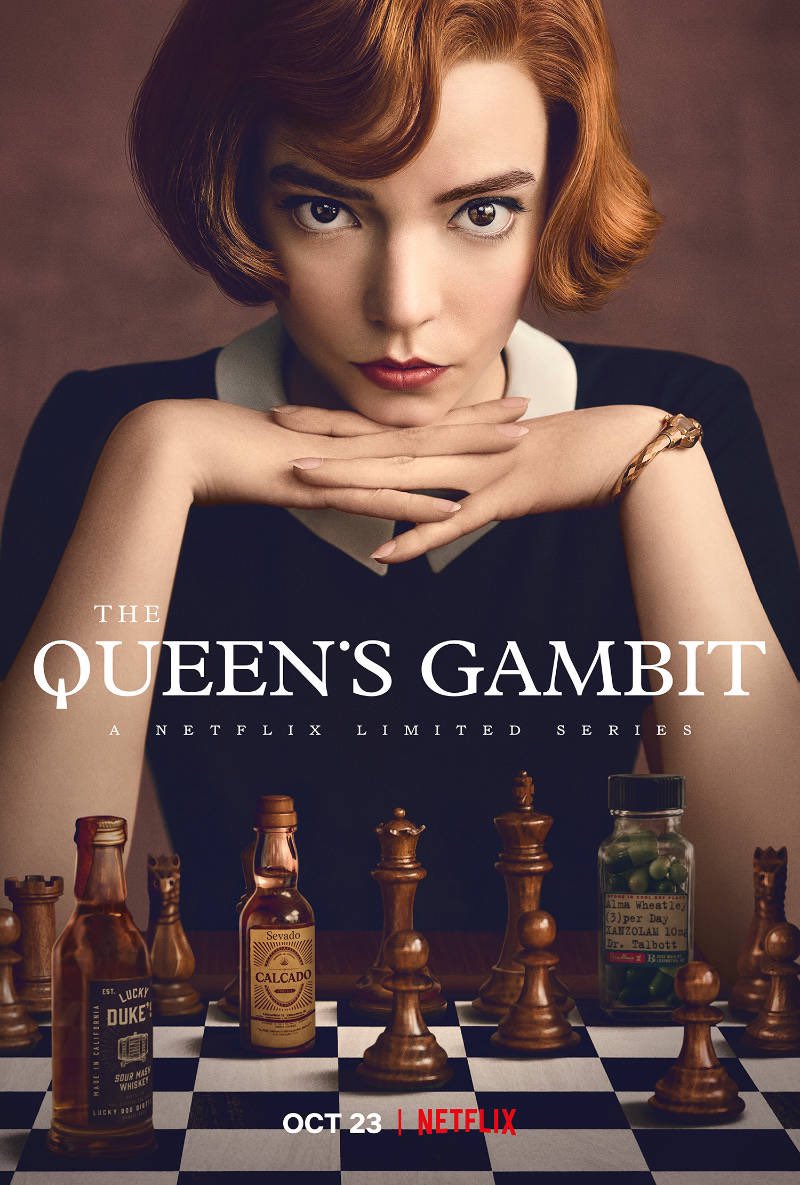Dependence
Thursday, December 10, 2020 at 4:16am

Queen’s Gambit is the story of Elizabeth Harmon, who starts as a girl orphaned at about the age of ten when her mother dies in a car crash. Elizabeth is sent to an orphanage, which, while not the cruelest institution imaginable, is notable for elements that, apparently legal in the 1950’s, grate on modern sensibilities. The most notable example is that the staff are routinely drugging the children with tranquilizers to make them more docile.
Shortly after being enrolled, Elizabeth discovers the orphanage’s janitor playing chess and requests he teach her how to play. He rebuffs her at first, then later acquiesces, and before long it is discovered that Elizabeth is a chess-playing prodigy. Also of import is Elizabeth’s discovery that the tranquilizers allow her to visualize the board, the pieces, and the moves of the game in her mind, allowing her to learn in weeks what would take most people years.
At age thirteen, Elizabeth is adopted and from here it only a matter of time before she catapults herself into the lucrative world of professional chess-playing. She comes, however, to discover that her usage of the tranquilizers to make her better at the game has morphed into an addiction, a behavior that will spill over into alcohol as the series progresses.
Through flashbacks over the course of the show, we are treated to vignettes of Elizabeth’s mother, who, before she died, inculcated in Elizabeth a kind of hyper-individualism, a sense that the world is filled with people who will use and abuse you, and it is best to learn how to fend for oneself. Situations in Elizabeth’s life appear to play into this narrative. Many of the people she could potentially care about behave terribly towards her, or leave, or simply die. With each of these events, the draw of addiction grows stronger—if you can’t depend on anyone else, better the dependence that will give you the illusion of control. However, Elizabeth also develops this skill as a reflex and also pushes away the people who genuinely care about her, choosing the stupor of tranquilizers and alcohol over relationships.
You don’t have be an master story weaver to guess where that road will end, and Elizabeth struggles to avoid that fate. The show handles her escape from that pit remarkably well. It is perhaps a bit too convenient, but it is not entirely unbelievable, with other characters, for a time, challenging her on the distancing behavior she has exhibited toward them.
Queen’s Gambit is a story about who or what we depend on, how those relationships can be healthy (genuine, with well-intentioned people) or toxic (with cruel people or with substances). It is a kind of coming of age story. It is about how the American drive to individualism has some decidedly unappealing costs if taken too far. Its sets and decor gorgeously evoke the 1960’s. It is well acted.
I can honestly recommend Queen’s Gambit as a worthwhile viewing experience. For me, it was a powerful reminder of how thankful I am for having trustworthy people in my life, people I can depend on.









